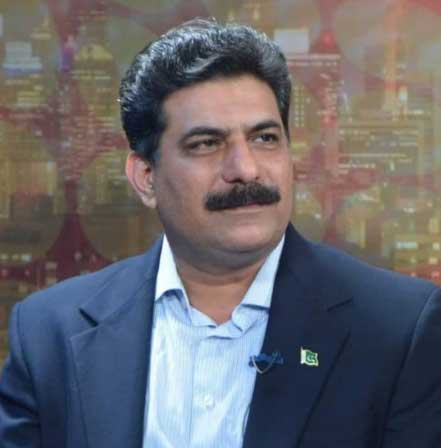

May 28, celebrated as Youm-e-Takbeer-is etched into Pakistan’s national memory as a day of pride, resilience, and strategic resolve. On this historic day, Pakistan conducted its first successful nuclear tests in the rugged hills of Chagai, Balochistan. These tests not only established Pakistan as the first Islamic nuclear power and the seventh globally but also reshaped the strategic dynamics of South Asia.
Youm-e-Takbeer signifies far more than scientific and technological achievement. It embodies the national will to preserve sovereignty and regional peace through a policy rooted in deterrence and defense, not aggression.
At its core, deterrence aims to prevent conflict by ensuring credible retaliation. A nation with an effective deterrent sends a clear message: any act of aggression will invite consequences too severe for the aggressor to bear. This principle became the bedrock of Pakistan’s defense policy, especially in the face of rising regional tensions and military imbalances.
After India conducted its first nuclear test in 1974-ironically termed a “peaceful nuclear explosion”-Pakistan was left to reassess its strategic vulnerabilities. The growing conventional and nuclear disparity necessitated a shift in policy to ensure national security and regional equilibrium.
Pakistan’s decision to pursue nuclear capability was born not out of a desire for competition, but as a strategic compulsion. While critics often cite a regional arms race, Pakistan’s nuclear journey has been fundamentally defensive in nature. For years, despite possessing the technological capability, Pakistan exercised restraint.
However, when India conducted a series of nuclear tests in May 1998, it disrupted the fragile balance in the region. Pakistan had no choice but to respond. Prime Minister Nawaz Sharif’s bold decision to proceed with the tests-despite global pressure, threats of sanctions, and diplomatic isolation-was based on one principle: national security must never be compromised.
His leadership demonstrated the state’s resolve to safeguard its sovereignty and signaled that peace could only be sustained through strength and preparedness.
Pakistan’s nuclear doctrine is rooted in Minimum Credible Deterrence (MCD)-a principle that emphasizes the need for just enough capability to deter aggression. Unlike doctrines of expansion or superiority, MCD focuses solely on defensive sufficiency.
Over time, Pakistan refined this posture to include Full Spectrum Deterrence, which addresses threats across all domains-strategic, operational, and tactical. This includes enhancing second-strike capability, upgrading command and control systems, and ensuring strategic asset security.
Despite its technological advancements, Pakistan has consistently advocated for regional stability. It has proposed bilateral arms control agreements, nuclear restraint regimes, and no-first-use pacts-all of which reflect its commitment to peace and responsible behavior.
Since the tests of 1998, Pakistan’s nuclear deterrent has served as a stabilizing force in the region. Moments of intense crisis-such as the Kargil conflict (1999), the Twin Peaks standoff (2001-02), and the Pulwama-Balakot episode (2019)-have all tested the limits of diplomacy. Yet, in each case, the specter of mutual destruction helped de-escalate tensions.
Nuclear deterrence, however, is not solely about weapons. It requires political maturity, disciplined command structures, and a deep understanding of thresholds and consequences. Pakistan’s National Command Authority (NCA), backed by a professional military and civilian oversight, ensures robust and secure management of its strategic arsenal.
Pakistan’s approach to “peace through strength” extends beyond military capabilities. True deterrence includes economic resilience, political stability, diplomatic engagement, and social harmony. A secure nation is one that empowers its people, invests in education and innovation, and promotes internal unity alongside external readiness.
Pakistan has shown time and again that it prefers dialogue over confrontation. Its repeated offers for strategic dialogue, disarmament discussions, and regional cooperation underscore a desire for enduring peace based on mutual respect and parity.
Moreover, Pakistan has implemented stringent safety and control measures around its nuclear infrastructure. It adheres to global non-proliferation standards and has established a comprehensive export control regime, demonstrating its commitment as a responsible nuclear power.
Despite Pakistan’s track record of strategic responsibility, it continues to face global skepticism and discriminatory treatment. While efforts have been made to include India in international nuclear frameworks such as the Nuclear Suppliers Group (NSG), Pakistan’s legitimate security concerns and capabilities are often overlooked.
This imbalance not only threatens regional stability but undermines the principle of fairness in global non-proliferation regimes. Pakistan seeks equal treatment, constructive engagement, and recognition of its role as a stabilizing force in South Asia.
As the nation commemorates Youm-e-Takbeer, it is a time to honor the scientists, leaders, and citizens whose collective resolve made this historic achievement possible. It is also a moment to reflect on the deeper meaning of deterrence: the preservation of peace, dignity, and sovereignty through strength, discipline, and strategic foresight.
Pakistan’s nuclear doctrine remains rooted in restraint, realism, and responsibility. It sends a clear message to the world: while we seek peace, we are prepared to defend it-at all costs.
In celebrating May 28, we reaffirm our national unity and the vision of a strong, self-reliant Pakistan-determined not to dominate, but to deter; not to escalate, but to endure.




